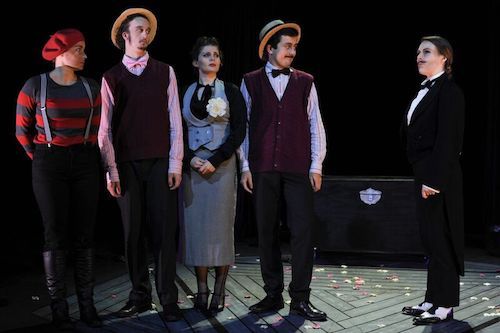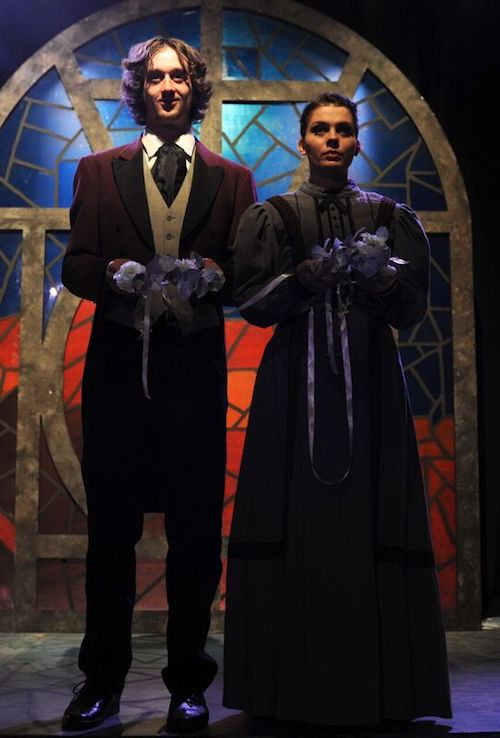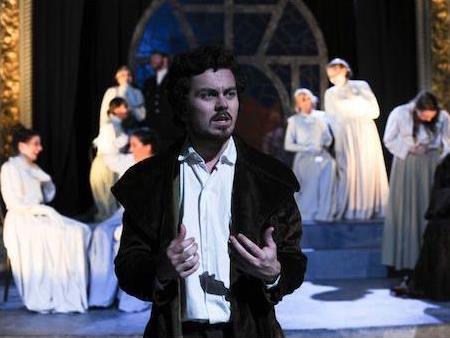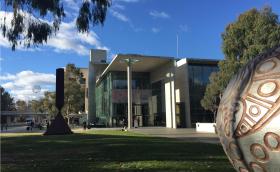Acting graduates from AIM are not only employable, they are artistic innovators.
Entrepreneurship is taught as an academic subject to students in the two-year intensive Bachelor of Performance with the Australian Institute of Music’s Dramatic Arts department.
Students learn to be innovative, proactive and create opportunity for work, said Head of Dramatic Arts Peta Downes.
She told ArtsHub learning entrepreneurship was integral to enabling students to hit the ground running upon graduation so they can either apply for existing roles, or build their own.
‘We develop in our students a natural ability to develop an idea and look into the possibilities of making that a reality by negotiating with venues and other producers and being able to co-produce,’ she told ArtsHub.
‘It’s being realistic about the costs of actually producing a show and thinking about the marketing so they learn all of that – financial management, marketing and entrepreneurship so if they do want to leave here and join forces with others and form a company they understand the legal ramifications of that and what they need to do to set that up.’

Acting students at AIM are taught how to form their own theatre group and make it financially successful.
Education Minister Simon Birmingham recently excluded several acting and performance courses from VET-funding, saying the criteria for funding should be employment prospects for students.
Downes says Birmingham’s comments that acting is a ‘lifestyle choice’ and graduates are not ready to work, are mistaken.
‘The creative industries pumps billions into the Australian economy and I think that the government attacking the VET sector courses and saying they are simply a ‘lifestyle choice’ courses is short-sighted,’ she said.
Downes says there appears to be an assumption within government that drama and acting courses simply produce actors – not so. ‘Our graduates are being employed by theatre companies and festivals across a range of creative, production and performance roles and that’s what’s exciting for us – watching our students go out there and be part of the whole industry.’
She said AIM’s Bachelor of Performance was 50 percent actor training with the rest of the course focused on fundamental theatre-making skills in the areas of writing and devising, dramaturgy, directing, design, technical production, event management, entrepreneurship, marketing and financial management.
She said AIM is clear with students that the course is not just an acting degree – and many choose a second creative area once they undertake the course.
‘I think 80 percent of our students come to us cognisant of the fact that this course will offer them a different set of skills and a comprehensive understanding of the industry but I don’t think they fully understand until they are immersed in it,’ she said.

While many AIM students continue to pursue an acting career after graduation, others turn to production.
‘Many students in this course realise that while acting is still their first love, there are many actors in the industry and maybe they are also great at designing or directing and writing or sound design and maybe that is really where their creative passion really lies. The course actually sorts them out.’
Downes says having a myriad of skills allows graduates to be flexible and innovative in their approach to their chosen career.
‘Actors these days need to learn how to differentiate themselves and the only way to do that is to create your own work and produce your own work and be able to put your mark on the work itself – and to be able to do that you need to have skills as a producer,’ she said.
‘You need to be able to at least produce a play that you’d like to perform in that will showcase you, and this is what this course is about. It gives them momentum to be proactive. And that is what makes people employable.’
Visit the AIM website for more information about enrolments in the 2017 Bachelor of Performance degree.






